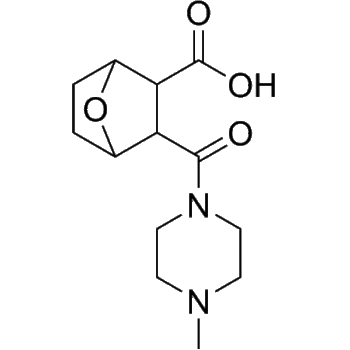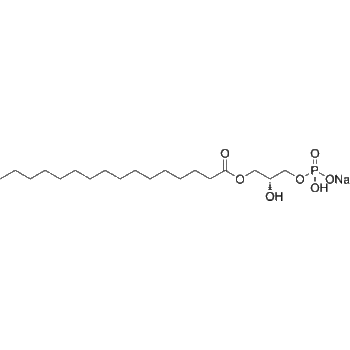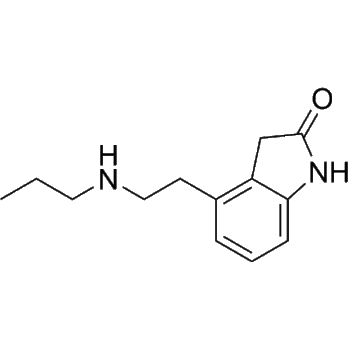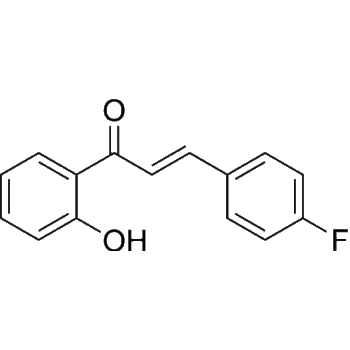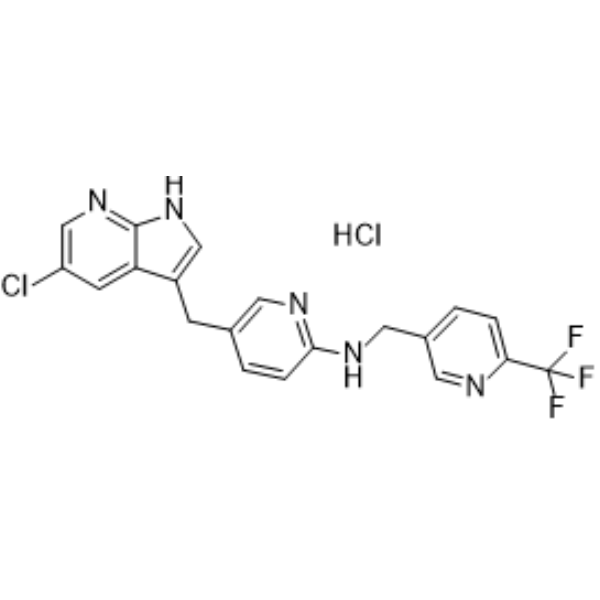
Download Files:
Pexidartinib (hydrochloride)
SKU
HY-16749A-1 g
Category Reference compound
Tags Apoptosis;c-Fms;c-Kit, Apoptosis;Protein Tyrosine Kinase/RTK, Cancer
$50 – $6,850
Products Details
Product Description
– Pexidartinib hydrochloride (PLX-3397 hydrochloride) is a potent, orally active, selective, and ATP-competitive colony stimulating factor 1 receptor (CSF1R or M-CSFR) and c-Kit inhibitor, with IC50s of 20 and 10 nM, respectively. Pexidartinib hydrochloride exhibits 10- to 100-fold selectivity for c-Kit and CSF1R over other related kinases. Pexidartinib hydrochloride induces cell apoptosis and has anti-cancer activity[1].
Web ID
– HY-16749A
Storage Temperature
– 4°C (Powder, sealed storage, away from moisture)
Shipping
– Room Temperature
Applications
– Cancer-Kinase/protease
Molecular Formula
– C20H16Cl2F3N5
Citations
– Biomolecules. 2022 May 4;12(5):666.|Universität zu Köln. 2023 Sep 26.|Am J Physiol Cell Physiol. 2020 Sep 1;319(3):C605-C610.|Anti-Cancer Drug. 2022 Dec.|Behav Pharmacol. 2023 Sep 1;34(6):318-329.|Biochem Pharmacol. 2022 Feb 9;198:114952.|Biomedicines. 2021, 9(10), 1387.|Biomedicines. 2022, 10(7), 1653.|bioRxiv. 2023 Jul 25.|bioRxiv. 2023 Nov 14.|bioRxiv. 2023 Nov 17.|bioRxiv. 2023 Oct 12.|BMC Med. 2023 Aug 4;21(1):286.|Brain Behav Immun. 2022 Oct 3;S0889-1591(22)00398-1.|Cancer Cell. 2021 Sep 1;S1535-6108(21)00445-1.|Cancer Cell. 2023 Nov 13;41(11):1911-1926.e8.|Cancer Lett. 2022 Jun 16;215795.|Cell Oncol. 2021 Feb;44(1):193-204.|Cell Rep. 2023 Sep 22;42(10):113128.|Cells. 2021, 10(4), 874.|Cells. 2021, 10(8), 1862|Chem Biol Interact. 2022: 110255.|Circ Res. 2021 Sep 17;129(7):e121-e140.|CNS Neurosci Ther. 2023 Mar 16.|Diabetes. 2023 Sep 8;db230173.|eNeuro. 2023 Oct 27:ENEURO.0323-23.2023.|Front Immunol. 2022 May 13;13:866073.|Glia. 2021 Apr;69(4):943-953.|Glia. 2021 Feb 15.|Glia. 2022 Jun 30.|Int Immunopharmacol. 2023 May.|J Am Heart Assoc. 2023 Jun 15;e029053.|J Anat. 2023 Apr 11.|J Exp Med. 2023 Mar 6;220(3):e20220857.|J Neuroinflammation. 2020 Jan 23;17(1):31.|J Neuroinflammation. 2022 Jan 21;19(1):20.|J Neuroinflammation. 2023 Feb 25;20(1):51.|J Neurooncol. 2021 May 8.|J Neurosci Res. 2021 Feb 20.|J Neurosci. 2020 May 6;40(19):3862-3879.|J Ocul Pharmacol Ther. 2020 Jun;36(5):311-319.|Karolinska Institutet. Dept of Clinical Neuroscience. 2021 Feb.|Life Sci Alliance. 2023 Aug 7;6(11):e202302020.|Life Sci. 2020 Oct 1;258:118099.|Methods Mol Biol. 2018;1711:351-398.|Mol Pharmacol. April 5, 2022.|Molecules. 2022, 27(1), 297.|Nat Biomed Eng. 2018 Aug;2(8):578-588.|Nat Immunol. 2023 May;24(5):827-840.|Nature Cardiovascular Research. 2023 Jun 8.|Nature. 2022 Mar;603(7899):138-144.|Neural Regen Res. 2023.|Neuron. 2021 Aug 18;109(16):2573-2589.e9.|Neuropharmacology. 2019 Apr 4;151:33-44.|Neuropharmacology. 2020 Aug 1;172:108132.|Patent. US20230203500A1.|Pharmacol Res. 2023 Apr 15;106773.|Prog Neuropsychopharmacol Biol Psychiatry. 2020 Jul 13;101:109931.|Research Square Preprint. 2021 Sep.|Research Square Preprint. 2022 Jul.|Research Square Preprint. 2023 Sep 12.|Research Square Print. 2022 Jun.|Sci Rep. 2021 Aug 6;11(1):15989.|SSRN. 2023 Jun 29.|STAR Protoc. 2023 Jul 29;4(3):102490.|The Ohio State University. 2023 Oct.|Theranostics. 2020 Jan 1;10(1):74-90.|Transl Psychiatry. 2020 Jan 27;10(1):32.|Universität zu Köln. 2023 Sep 26.
References
– [1]Merry TL, et al. The CSF1 receptor inhibitor pexidartinib (PLX3397) reduces tissue macrophage levels without affecting glucose homeostasis in mice. Int J Obes (Lond). 2020;44(1):245-253.|[2]Lee JH, et al. A phase I study of pexidartinib, a colony-stimulating factor 1 receptor inhibitor, in Asian patients with advanced solid tumors. Invest New Drugs. 2019 Mar 2.|[3]DeNardo DG, et al. Leukocyte complexity predicts breast cancer survival and functionally regulates response to chemotherapy. Cancer Discov. 2011 Jun;1(1):54-67.|[4]Kuse Y, et al. Microglia increases the proliferation of retinal precursor cells during postnatal development. Mol Vis. 2018 Jul 30;24:536-545. eCollection 2018.
CAS Number
– 2040295-03-0
Molecular Weight
– 454.28
Compound Purity
– 99.89
SMILES
– FC(C1=CC=C(CNC2=NC=C(CC3=CNC4=NC=C(Cl)C=C43)C=C2)C=N1)(F)F.Cl
Clinical Information
– Launched
Research Area
– Cancer
Solubility
– DMSO : 60 mg/mL (ultrasonic)|H2O : < 0.1 mg/mL (ultrasonic)
Target
– Apoptosis;c-Fms;c-Kit
Pathway
– Apoptosis;Protein Tyrosine Kinase/RTK
Product type
– Reference compound
Disclaimer: All products are for Research use only unless clearly stated otherwise on the product datasheet. Datasheets provided on the website are drafts for reference purpose only and you are requested to always refer to the hard copy included in the kit for your experimentation. Agdia Products are available for delivery only in Canada.

